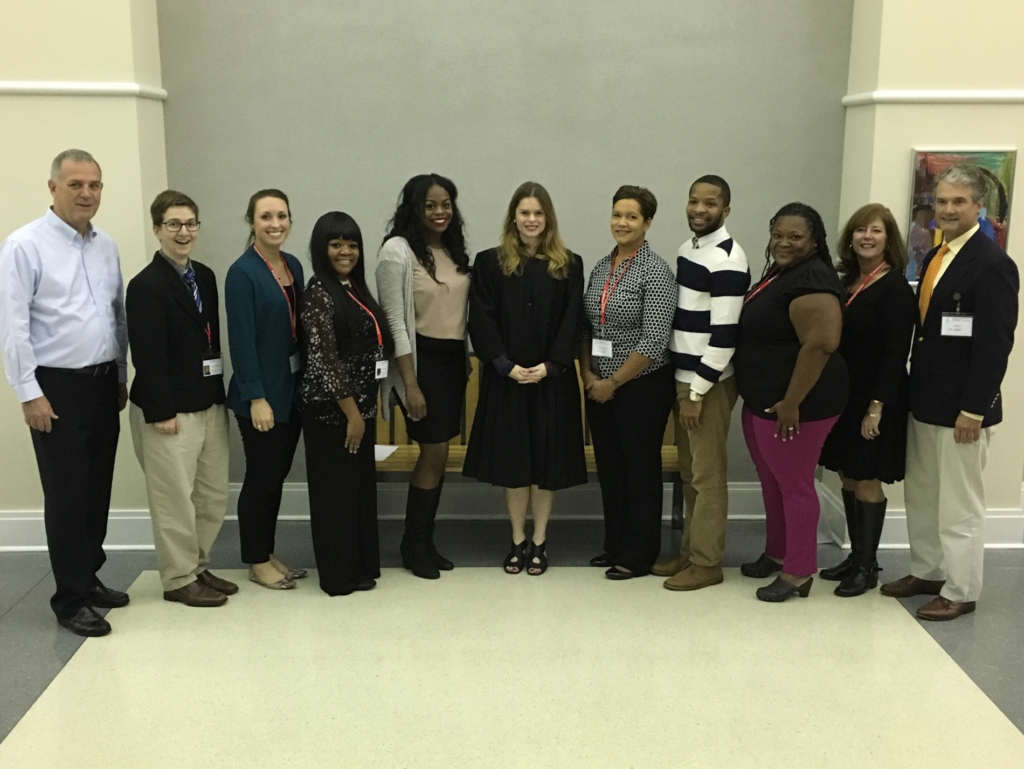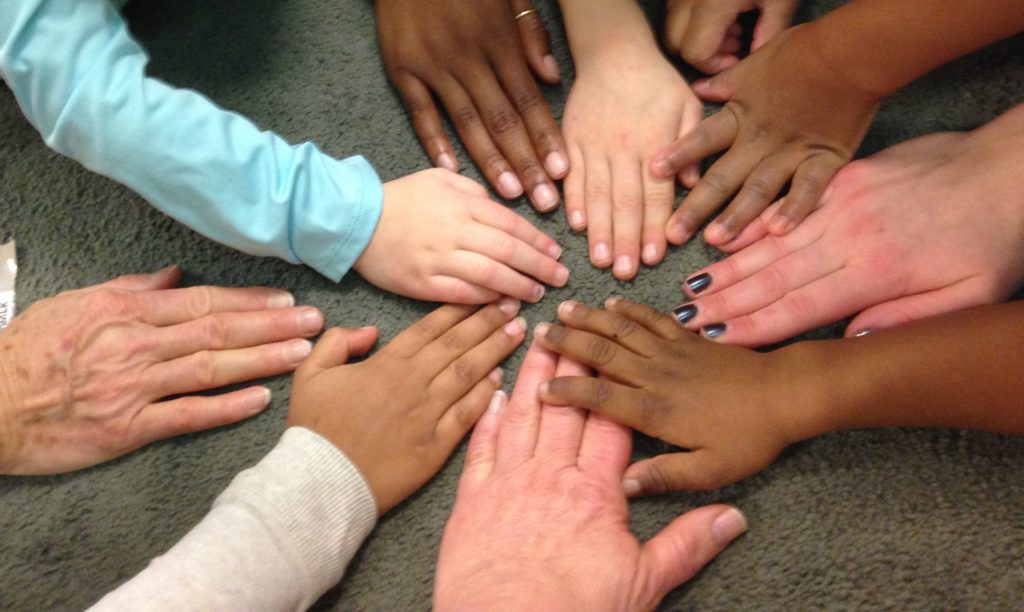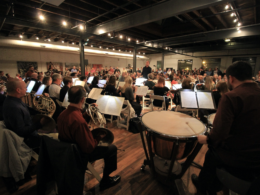In 1991, as the Dow pushed over 3,000, gas prices hovered around $1.10/gallon and U.S. forces thumped Saddam Hussein back into Iraq – in other words, a long time ago – a group of earnest Richmonders set out to raise awareness about a problem not unique to our community: child abuse and neglect. At the time, there was no single organization focused exclusively on the issue, and so this well-intended group coalesced around a noble idea – to create a nonprofit organization whose mission would be to raise awareness about child abuse and its impact not only on individual children and families but on a community as a whole.
And so was born Greater Richmond SCAN (Stop Child Abuse Now), an organization that has grown leaps and bounds, both in size and influence, over the past three decades. As SCAN approaches its 30th anniversary, we thought it an appropriate occasion for reflecting on its life – from its own infancy and childhood through adolescence and now into full-throated adulthood.
The Early Years
SCAN’s first baby steps came in the form of fundraisers that raised dollars to support the production of educational resources, mostly printed materials (still before the internet!) designed to increase visibility around the issue of abuse and neglect. Before long, the group began forming parenting groups to provide support and education for parents. It was an important step toward helping make children’s homes safer and more stable.
Building on some early traction, SCAN began spreading its wings with the hiring of a full-time executive director, and Sherry Coor helped to lay the foundation for the organization’s early identity and focus. Then, in late 1999, SCAN hired a big-hearted social worker whose work at Home Again gave her insights into family struggles. Today, 22 years later, Jeanine Harper is still at the helm, growing SCAN from her first days when there was $10,000 in the bank into a tour de force for kids with a budget of more than $2 million, a staff of 56 and thousands of volunteer hours every year.

“Back then, SCAN was exclusively focused on our Family Support Program, and so we asked ‘what other population could we serve? Who are we missing in terms of need?’” Harper remembers.
And so, SCAN looked beyond traditional parenting groups to begin holding children’s groups, which had the extra benefit of freeing up their parents to participate in their own groups. Before long they were reaching out to parents whose native language was not English, to those who were incarcerated, even to grandparents and other caregivers.
The CAC
In 2002, Harper recalls reading a magazine article about a child advocacy center in another state. That flipped on the lightbulb above Harper’s head, and soon SCAN was gathering momentum to create a Richmond-based child advocacy center, a children-friendly place that would coordinate the investigation, treatment and prosecution of abuse and neglect cases.
Community partners, including local law enforcement agencies, local departments of social services and health systems at VCU and Bon Secours, were soon on board, and in the fall of 2004, SCAN’s Child Advocacy Center opened its doors in the basement of Old City Hall.
“Creating the CAC at the time was a big leap for us,” Harper says, “but it was something that the staff and the board knew we had to do.”
Seventeen years later, the CAC – which has since moved near SCAN’s Grace Street offices and opened a second location in Henrico County – continues to serve as a centerpiece for cooperation among a large cross-section of entities involved in child abuse cases.
Enter FAM
One of the issues that SCAN has struggled with over the years is the stigma that comes with asking for parenting help. People often make an assumption that if a parent is involved in a SCAN parenting group, then by implication, they must have a history of abusing or neglecting their child. But that is far from the case.
“What we know is that parenting is hard, and so we ask ourselves how can we take what we do with respect to education and support and make it more likely that people will avail themselves of it?” Harper asks. “We want asking for parenting help to be more of the norm, and that was the idea around a program we call FAM.”
FAM – in its early days (circa 2008), an acronym for Families Are Magic – provides resources that are available to anyone looking for help navigating the often-choppy seas of parenting. The program provides educational materials as well as links to other programs that offer support.
A Strategic Merger

The SCAN umbrella opened much wider in late 2009 when the organization joined forces with a natural partner: Richmond CASA (Court Appointed Special Advocates). With its specialty of serving as advocates for children as their circumstances make their way through the court system, Richmond CASA has a long history for putting the welfare of children first and foremost, and many CASAs around the country exist within larger organizations like SCAN.
“Our merger with Richmond CASA really has been a beautiful, beautiful marriage,” Harper says, “But here again, it was a move with considerable budget implications, and we had to ask ourselves if we were ready for it. And now I can’t imagine SCAN without Richmond CASA.”
Completing the Circle
SCAN’s fifth and final program began 10 years ago, and its roots stem again from what researchers in neuroscience have discovered about the human brain’s capacity for resilience. The traumatic impact of abuse need not have irreversible consequences, and based on the work of Dr. Bruce Perry and others into therapeutic models on how to best treat children exposed to trauma, SCAN founded a therapeutic childcare program it calls Circle Preschool.
“Through Circle we see the pain and difficulty and challenges within these kids, but we also are witness to their brilliance and their capacity, and we can hold both, and we do,” Harper says.
SCAN expanded Circle last fall as part of a collaboration with the YWCA’s Sprout School. The program has been held up as a national model in therapeutic interventions.
Moving Forward
Even as SCAN’s five program continue to make a major impact on local children and families, Harper and SCAN are focused on the future.

“We really need to make more of an impact on prevention,” Harper says. “We are working on more partnerships, more collaborations. On more training and development, including in other places around the region like in the courts, public and private schools, Boys & Girls Clubs where we have embedded some of our full-time employees. Our focus is turning more to a system level, which gives us the best opportunity to make a difference.”
Happy 30th
April in not only Child Abuse Prevention Month, but it marks the 30th anniversary of an organization that has come so far. If you would like to help commemorate SCAN’s birthday, you are invited to its 30th Anniversary Kickoff Celebration on Friday, April 30 from 6-9 p.m. Click here for more information.
Happy birthday, SCAN!










